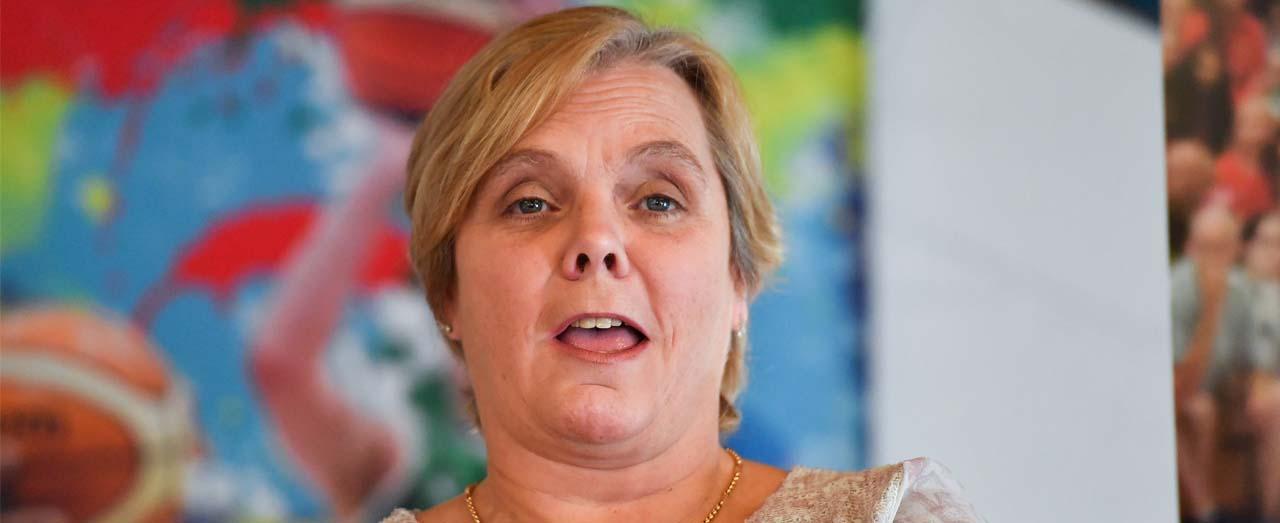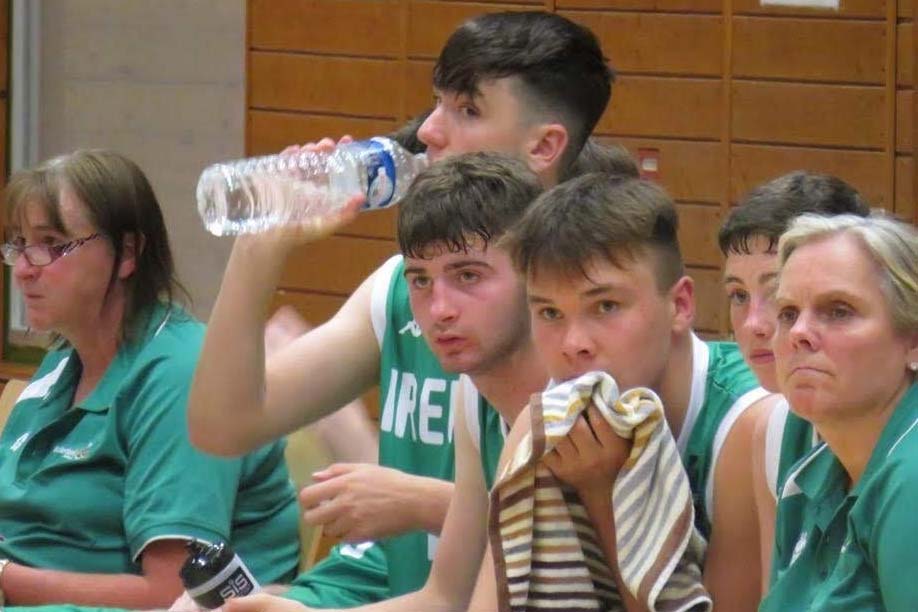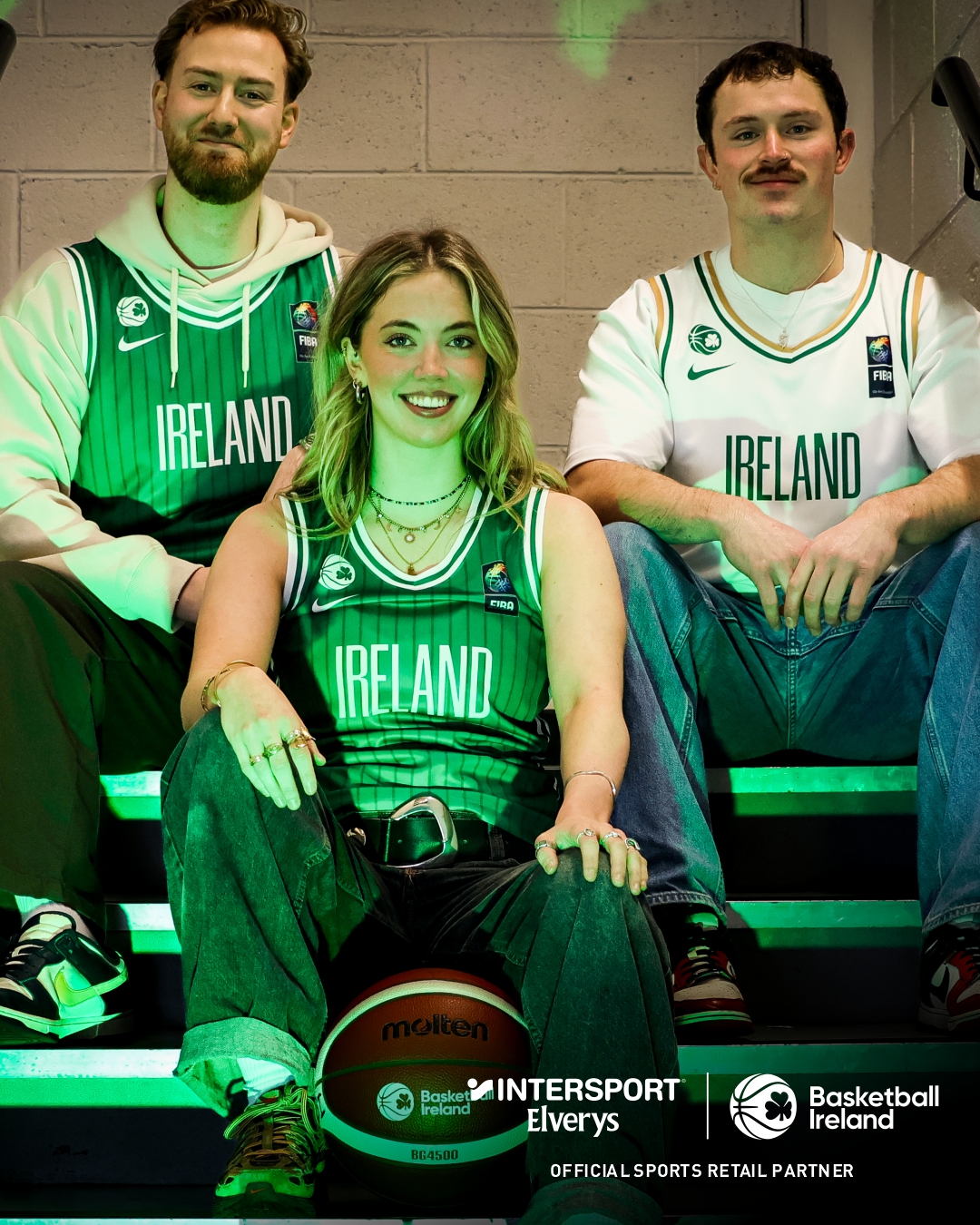Carmel Kilmartin - St Vincent’s BC

Aassistant coach: Ireland U20 men’s team, Ireland U16 men’s team, U15 Boys East Academy.
Interview
Can you take us through your playing background?
I played with Saint Declan’s in my early years . I then played with Tridents for 10 years but my playing days were curtailed due to an injury to my ACL and medial ligaments.
How did you get involved in coaching?
I began coaching when I was in secondary school. My school was mainly a hockey school but we had some basketball teams. I liaised with my PE teacher and I then co-ordinated and ran the basketball programme with her and did it on my own for the last two years of school. Coaching in school gave me the grá for coaching young players as I could see my strengths were in player development. When playing in Tridents, I was asked to coach a boys and girls team, and this was the start of my coaching career.
What kind of teams have you coached?
I coached a boys and girls team in Tridents from U15 to U18. I moved to Vincent’s as my son Sean was playing and there were no teams above his age group. I coached his team at U13, 14, 15 and 16. I left Vincent’s for a couple of years to coach my daughter in Tolka Rovers and returned a few years later to coach the mens’ team from U17 right through to U20s. In Tolka Rovers, I coached the girls team for U12 and U13 season. I also coached the boys U18s and U20s. The highlight of my coaching career in the early stages was coaching the Dublin U13s, then the U14 teams for 23 years. Every year, we had trials and brought the team to a European tournament in Belgium. My biggest coaching accolade was being assistant coach for the Ireland U16 Men and the Ireland U20 men – it was an honour to be part of the international programmes. I have also been assistant coach of the U15 Boys East Academy. Due to personal reasons, I haven’t coached for the last year but I hope to return next season.
Who would you say was a role model for you as a coach and why?
It is very hard to pick just one coach. I have a few!! Two female coaches, Debbie Flynn and Maeve Coleman inspired me greatly. I was assistant coach to Debbie with the Dublin team for one year and took over the reins the following year. The rapport she had with the young players and the importance of defence were an integral part of her coaching. Maeve needs no introduction. Her knowledge, the belief she had in her systems, the respect she gained from players and her love and enthusiasm for the game inspired me and my own ability as a coach. She is always there if I need a chat, support or advice about the game. Coaching at regional and international level was a step up for me and a man we all know, Joey Boylan, was always on hand. His knowledge, experience and commitment to the game at every level are inspiring. Being involved at international level, I got to see firsthand how organised his sessions were and took tips from these that I still use to this day. He is always available for a call to offer expertise advice on different aspects of the game.
What is the most important thing for you when coaching younger/teenage boys and girls?
I feel coaching younger players is different to coaching teenagers. When I am coaching young players, I try to have fun with them and be enthusiastic, whilst teaching them the basic fundamentals of the game. Giving clear precise instructions but keeping it simple so they understand. Keeping them all involved and checking they are enjoying it is really important as I think this encourages participation. Coaching teenagers is different. I always try to connect with all players. I place emphasis on the importance of team effort, hard work and commitment. I respect the players and they in turn have to respect me. Effective communication is key. Teenagers are developing both physically and mentally and there can be outside issues in their personal lives that can impact behaviours. Sport can be escapism for teenagers, so I always try to create a safe environment that all players feel wanted and included in the team.

Have you any tips you'd like to share on keeping girls engaged in sport - particularly at the 14-18 year old age group?
The biggest thing I would say is to connect with the players. It is important that there is a build up of trust and constant encouragement. Girls at this age strive for approval, they want to fit in. Body image due to the pressures of social media can have a huge impact on girls at this age. Speak to them about female role models in sport. Katie Taylor and Lindsay Peat are two that come to mind. Get senior players in to speak to them about their journey and the positive impact sport had on them growing up. It is important to give constructive criticism - instructive. I feel this encourages better self esteem and motivation
Do you have a favourite drill you use for younger players to keep them engaged in the training session and if so, what is it?
Simple drills involving all players are important when coaching younger players. Drills need to be short so players stay engaged. Splitting into teams and having races to the half way line whilst incorporating dribbling with both hands, jump stop and passing are fun and simple. Playing small sided games as young players just want to play and finish with a game of knock out.
Any tips you would like to give to young coaches who are starting out?
Don’t be afraid to ask for advice and support. I would suggest starting out as an assistant or ask a coach in the club can you shadow them. This way, you will see how a coach manages the team, runs training sessions and game coaching. Maybe start off with a young team as it is a less pressured environment.
When you first stepped up to National League/International level, were you nervous about the step up and how did you deal with that if so?
It is something that initially daunted me due to a lack of confidence - confidence in my own ability as a coach. I feel I question that a lot. “Am I good enough, I won’t go for that coaching position as I am not good enough. There are other coaches better than me”. Self belief is so important but I also feel being true to yourself and your ability is important. Have the confidence to walk the walk but talk the talk. If you are confident in your ability as a coach you will be a better coach as you believe in yourself. At international level, the honour to be appointed to coach is hard to put into words. I have been one of the lucky female coaches to get an opportunity as assistant coach to a great coach of our game, Mike Lynch on two international programmes. It was coach Maeve Coleman who encouraged or maybe PUSHED me to apply for an nternational team and it is something that initially daunted me but I am so happy I listened to her!
What would you say to other female coaches who are considering moving up a level in their coaching careers?
I think as women we put the barriers up ourselves. Believe in your ability. Ask for advice from other women who have coached at these levels. It is a huge commitment time wise, so you will need the support from others especially if you have a family. Only we can change it, rather than just talk about it we need to be proactive and DO. Once you take the initial step and you know the supports are there you will absolutely love it.
How do you measure the success of a training session?
I always look at the goals of the specific practice. I have three key things I bring to practice. It is important I manage, teach and communicate clearly what is expected of the team. The success is measured by the team’s engagement. If all players work hard, run drills at game pace and execute our plays properly during the session it will have positive results. If we have learned from mistakes we have made in previous games and work on getting better in our training sessions this will make us a better team. When I look back on a training session, I always evaluate it. Record team performance in drills (number of shots, lay ups made in certain time as this can be used to track improvement), areas we need focus on in next session, identify skill areas we need to improve on individually and as a team.
How do you measure success in broader terms?
It is so rewarding to see players develop and have a love for basketball. From coaching basic fundamentals to the finer details of the games, to many players of all ages with different backgrounds and to see them develop both on and off the court is to me a huge measure of success. The friendships that are forged, especially at regional and international level, are often lifelong. We as coaches all want to get the silverware and relish in winning, but this doesn’t always happen. I was told by a player one time after losing a national cup final that my ability to nurture, relate to players and understand their feelings was a huge part of their enjoyment playing for me. This, coupled with coaching qualities and knowledge, made the players strive for success and perform to the best of their ability. That to me is success.
How important do you think it is for coaches to keep learning and developing regardless of level of experience?
It is hugely important that we as coaches are constantly learning so we can develop and improve our knowledge of the game. Education and knowledge are key tools and we can always learn new things to share. We don’t coach for the sake of coaching, we coach to improve players.
Have you noticed many changes in Ireland in coaching over the years? If so, what?
The game is changing and coaching in Ireland is moving in line with this. There are the academies which have been a success, and there are more young players playing because of them. Coaches have resources like strength and conditioning, nutrition, sports psychology and video analysis readily available which enhances team performances. There have been online coaching forums and seminars , Paul Kelleher ran some coaching clinics on line that were really informative with something for all coaches regardless of the age group they are coaching.
What changes would you like to see in basketball coaching in Ireland in the future?
I think it is really important to develop the Coaching Pathway to encourage young coaches to become involved. Coach development and coach education are key. We need to change the mindset of “it’s always been done this way”. The game is changing and we need to adapt to this by using the resources and the coaching expertise we have by educating our coaches. Basketball IQ is very important. When coaches have been to European Championships maybe have a Coaching Forum after that for coaches to share and communicate their thoughts and ideas for going forward. Make the Women in Coaching forum an annual event. Relook at International Programmes and coaches set up. Grass roots for player development is important also.
What is the most valuable lesson you have learned as a player?
Respect and effort come from within. Always respect your coach, team mates, other teams and officials. Give 100% and leave nothing but hard work, effort and sweat on the court.
What is the most valuable lesson you have learned as a coach?
I am still learning lessons to this day. It is not about the wins and losses, it’s about doing the little things right, working hard, sticking together and putting the team first.
Anything else you'd like to add?
Coaching basketball is very enjoyable and rewarding. Winning is great but it isn’t the only measure of success. Learning from a loss and improving or finding ways to get better are key. It is after the tough losses our resilience as a coach and a team shine through, we show who we truly are and it is then that we have the opportunity for the greatest growth. Coaching basketball has taught me this very important life lesson and I hope I have instilled this into all the players I have had the pleasure of coaching. Thank you for asking me to be involved.

